Description
Name in North American Boletes: Leccinum holopus var. holopus and Leccinum holopus var. americanum
Genus: Leccinum
- Genus: Boletus
Species: holopus
- Species 2: holopus var. americanum
- Species 3: niveum
Common Name: “Ghost Bolete”
- Common Name 2: “White Birch Bolete”
- Common Name 3: “White Bog Bolete”
Tells: Grows in wetlands. White cap darkens w/age. White/buff/brown pores may stain yellow or brown. Firm whitish stem w/scabers that age from white to dark, & sometimes green stains by base.
Other Information: Easier to ID when young, with ghost-white, oft-viscid cap skin. Older caps darken toward buff, often w/pinkish or greenish tints. Flesh may bruise red, but rarely. Particularly likes bogs and swamps around birch, hemlock & cedar. A northern species that may be found in the Appalachians at higher altitudes.
Science Notes: This species used to be split in two based on whether the flesh stained red (var. americanum). DNA testing has confirmed that the staining feature is not enough to support different species.
Edibility: Good.
CHEMICAL TESTS:
- NH4OH (Ammonia): Cap skin turns pinkish.
- KOH: Cap skin has a very quick pink flash that disappears within a second or two.
- FeSO4 (Iron Salts): Cap skin slowly turns grayish olive. Cap flesh turns slightly olive.
Links:
 |
0 |  |
0 |  |
204 |  |
248 |

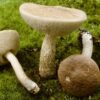
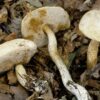
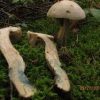
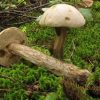
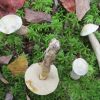
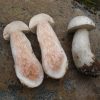
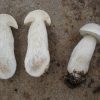
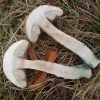
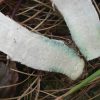
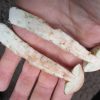
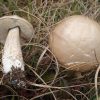
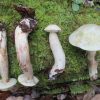
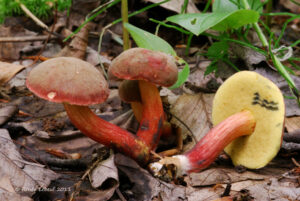
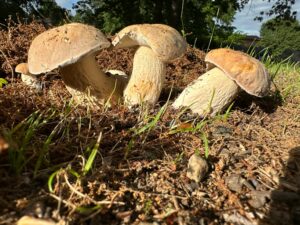
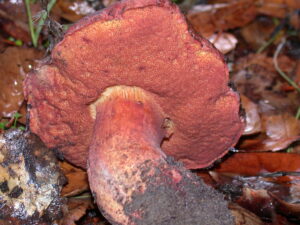
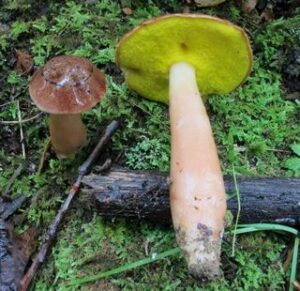
Got something to discuss?